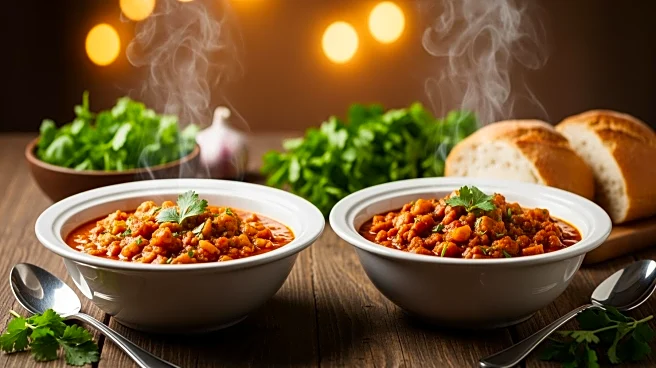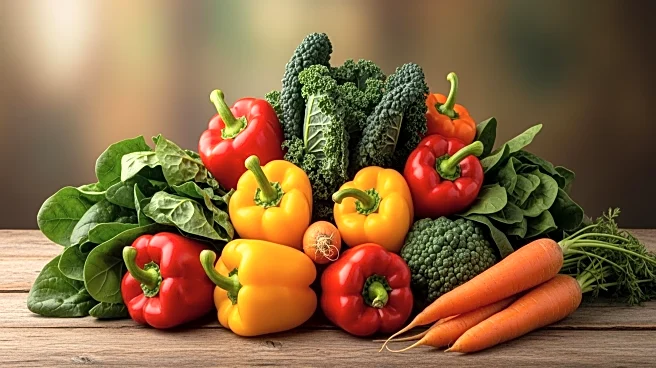Rapid Read • 7 min read
Recent research has identified a potential link between the consumption of ultra-processed foods and an increased risk of lung cancer. The study, published in the journal Thorax, analyzed data from over 102,000 participants in the Prostate, Lung, Colorectal, and Ovarian Cancer Screening Trial. Participants were categorized based on their intake of ultra-processed foods, with findings indicating that those consuming higher amounts had a 41% increased likelihood of developing lung cancer compared to those with lower consumption. Despite the association, experts caution that the study does not prove causation, and further research is needed to understand the relationship between ultra-processed foods and lung cancer.
AD
The study's findings are significant as they highlight the potential health risks associated with ultra-processed foods, which are prevalent in the American diet. These foods are typically high in added sugars, saturated fats, and sodium, while being low in fiber and micronutrients. The potential link to lung cancer adds to the growing body of evidence suggesting that ultra-processed foods may contribute to various health issues, including obesity, type 2 diabetes, and cardiovascular disease. This research may influence public health policies and dietary recommendations, encouraging consumers to limit their intake of ultra-processed foods.
Further research is necessary to establish a definitive causal relationship between ultra-processed foods and lung cancer. Scientists may conduct additional studies across different populations and settings to validate these findings. Public health officials and nutrition experts might use this information to advocate for dietary changes and increased awareness about the risks associated with ultra-processed foods. Consumers may be encouraged to opt for less processed options and focus on nutrient-dense foods to mitigate potential health risks.
AD
More Stories You Might Enjoy












